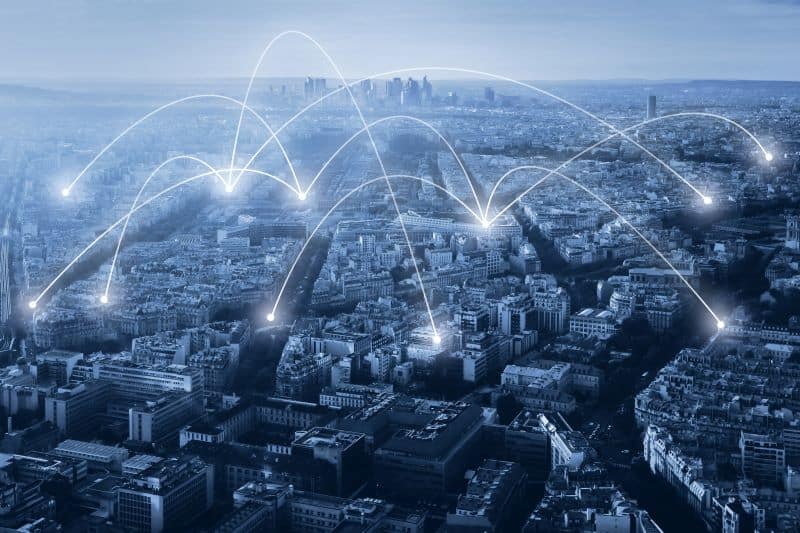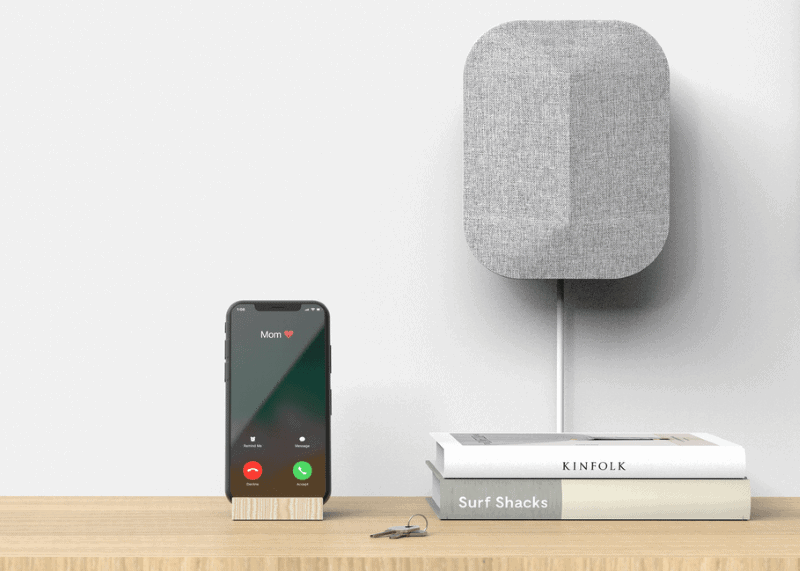Why You Need a Verizon Cell Signal Booster
Posted on 12/7/2022 by Web Admin
Verizon is the biggest of the four nationwide cell phone carriers in the United States, and it claims to have the widest coverage — providing service for 98 percent of the country’s population. Unfortunately, even this massive network is not perfect, and some Verizon customers still struggle to get a reliable signal in their homes and vehicles. Every large provider is going to have some dissatisfied customers, but is it the network that’s bad, or is something else in play? Let’s learn why you might need a Verizon cell signal booster.

Why is your Verizon signal poor?
To understand what’s going on with your Verizon cell phone signal, you first need to understand how mobile technology signals like 4G and 5G work.
Cell phone signals are sent out using a huge network of transmitters. The main base stations are very high-powered and can send signals a long way. These stations are augmented by a large number of smaller transmitters dotted around towns and cities. Each of these transmitters acts like a repeater, picking up a signal and boosting it to send on to other nearby transmitters.
A mobile phone signal is a form of radio wave. Unlike AM or FM radio, mobile phone signals use a very high frequency. They can travel a long way in clear air, but those radio waves are easily disrupted by obstacles.
And the list of potential obstacles includes almost everything around you — the metal walls of your truck, the stone or brick walls of an old building and even trees can all impact your cell signal. Every time a cell phone signal has to pass through something, it gets weaker.
The list of things that can obstruct and weaken a cell phone signal include:
- Natural obstructions such as hills, mountains or foliage
- Buildings (even tinted glass windows can reduce signal strength)
- Vehicles
- Weather conditions, including fog, rain, or thunderstorms
The farther you are from a cell phone tower, the weaker your signal may become and the more you need a Verizon cell signal booster.
This phenomenon is already noticeable with 4G signals, and it’s likely to get even worse when 5G becomes ubiquitous. A clear, unobstructed 5G signal is very fast and has low latency, but unfortunately, 5G signals are even more vulnerable to attenuation and blocking than 4G LTE.
Verizon (and other mobile providers) work around these limitations by putting up transmitters everywhere they can. This means if you live or work in a large city, you can usually expect a good signal.
Those who live in areas that aren’t as densely populated, and therefore aren’t as high of a priority for cellular providers, may encounter more problems.
Cell signals work best in obstruction-free environments
You’ve probably already noticed that cell signals work best in open environments. That’s why you may find that you lose your signal when going through a tunnel or into an underground public transit station. It’s also why people have a habit of stepping outside to take a call.
While it’s nice to have the excuse to step outside on a warm day, living with a poor signal day-in and day-out is far from ideal. Missing calls and being unable to reliably use apps that require a data connection in your home or while on the go makes for a poor end-user experience. This is why a Verizon cell signal booster come in handy.
Some people opt to switch providers if they have a poor cell phone signal. While this can sometimes work, Verizon’s extensive coverage means it’s hard for other providers to compete. If you have a poor Verizon signal, it’s unlikely that AT&T or another carrier would be much more reliable.
How can you improve your Verizon cell signal?
There’s not a lot that consumers can do on their own to improve their cell phone signals. In the short term, keeping your phone fully charged and trying to position it near an open window could help.
Another option is to switch which band your phone is attempting to use. If, for example, the 5G signal is very poor in the city, you may find that you have a more reliable signal, albeit at lower data rates, if you switch over to 4G.
You may also be able to improve your day-to-day experience by turning on WiFi calling whenever possible, which forces your phone to rely on the WiFi connection instead of cellular for most tasks.
Fortunately, you can boost your cell phone signal using a Verizon cell signal booster. We should note here that calling it Verizon cell signal booster is a bit of a misnomer, since weBoost signal boosters work with every carrier, including Verizon. We use it here to help Verizon customers find what they’re looking for.

How does a Verizon cell signal booster work?
Signal boosters work the same way for every carrier. They collect even weak signal from outside a building or vehicle, boost it, and then rebroadcast it inside for the benefit of every user.
A signal booster is made up of a few basic parts:
- A receiving antenna that is positioned outside the property in a location with some cell signal
- A booster to process and amplify that signal
- A transmitting antenna inside the building that sends the boosted signal to your devices
Any weBoost system will function as a Verizon cell signal booster, as well as a booster for any other network. Each one is FCC and carrier pre-approved, does not require an internet connection, and can boost 3G, 4G, LTE and 5G signals for many devices, on every network at once.
The fact that our boosters are carrier agnostic (meaning they work for every carrier) is key, because if you have friends or colleagues on T-Mobile, AT&T or other mobile carriers, the stronger signal will benefit them, too. A weBoost system is much more than a Verizon cell signal booster. It’ll work for everyone.
Verizon Network Extenders vs. the weBoost signal booster
The weBoost cell phone signal booster relies on the presence of an outdoor signal. The signal doesn’t have to be powerful, but it does help if it’s stable.
If you don’t care about other networks and just need a Verizon cell signal booster, you have another option. The Verizon 4G LTE Network Extender is a tool that creates a ‘mini tower’ in your home or office. Keep in mind that you will need a strong internet connection to use it.
For Verizon’s network extender to work, you must have a fixed internet connection. This means it doesn’t work in vehicles. The device creates a Verizon cell signal for you, and then feeds the data back to the network — meaning it competes with your other internet traffic. If your kids are streaming games or your partner is watching Netflix and you have a low bandwidth connection, then you might notice some degradation in performance.
In addition, since the network extender works only for Verizon customers, visiting friends using other networks won’t be able to take advantage of it. And if you switch carriers, it won’t work for you at all.
Choosing a Verizon cell signal booster
There are several weBoost Verizon cell signal boosters to choose from. For use at home, consider the weBoost Installed | Home Complete. This is the most powerful signal booster in the weBoost family of products with up to 7,500 sq ft of coverage and professional installation included. For your business, our best-in-class booster is Office 200 Pro Installed, which also includes certified installation.
For your passenger car or SUV, Drive Reach may be a good choice. It’s our most powerful boost for this kind of vehicle. If you’re into overlanding or off-roading, there is no better choice than Drive Reach Overland. Another option is the Drive Reach RV for those who require a little more power in an RV or camper van. weBoost signal boosters not only work as a Verizon cell signal booster, but also boost every other US carrier network.
If you’d like to know more about the range of weBoost signal boosters and get a quote for booster installation, contact us today to discuss your requirements. Our team is here to help you get connected.




